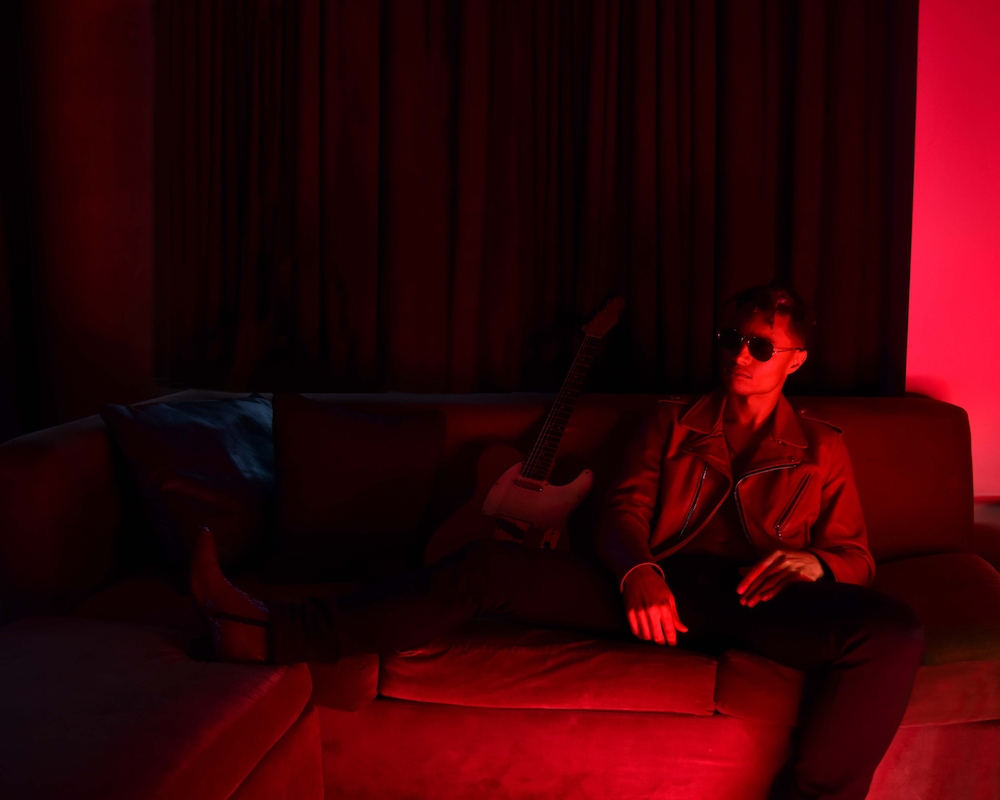
A conversation with supreme vocalist José James
Considering that José James’ first studio album The Dreamer was released less than a decade ago, we’ve heard a tremendous breadth of music since from the Minneapolis-born vocalist, once praised for his “free-wheeling nature” by the Monterey Jazz festival artistic director Tim Jackson. Through his acclaimed tribute to Billie Holiday and touring stints with McCoy Tyner, his jazz credentials have been proven emphatically, but with his latest project Love in a Time of Madness, as upon previous LPs, he has shown his ability to cruise from genre to genre and to step further away from jazz, without compromising the essence of his artistry or his wonderful vocal tone.
We’re thrilled to welcome him back to Band on the Wall and take him to Glee Club, Birmingham, but do so later than initially planned, given the hearing injuries he sustained on tour in Europe earlier this year. We began our conversation with José by checking in on his recovery, before going on to discuss his latest project and thoughts on artistic risk-taking.
If you’re unfamiliar with James’ remarkable vocal talents, this intimate session from MOSCOT in NYC, where he performs Bill Withers’ Use Me, serves as a nice introduction!
We’re thankful to hear that you’ve fully recovered from the injuries you sustained on the road earlier this year and that you’re back to doing what you love! We understand that the injuries, though specifically affecting your hearing, had untold effects on your overall fitness – can you explain the knock on effects that the injury had and how you’re recovering?
Thank you, it was pretty scary for a minute there. A musicians hearing is everything, so thankfully I’ve made a full recovery. The human body is interesting. Sometimes very loud sound – say over 120 decibels heard directly in your ear – can unbalance one’s inner ear balance. That’s what happened to me. When that happens one experiences vertigo and general body unbalance similar to feeling like one is on a ship at sea. So I had to pause my workouts for a couple months until I was fully balanced again. Now I’m back in the gym with my trainer and loving it.
You underwent something of an artistic reinvention with your latest album Love in a Time of Madness, doing something few artists manage to do, which is to develop your sound in a way which feels natural and well-suited to your voice and artistic values. How deliberate was your reinvention and given your lifestyle as a whole, how important is self-actualisation to you as an individual?
Thank you. I consider it more of an artistic extension rather than reinvention. The confusing thing for music fans (as opposed to visual art fans for instance) is that we’re not able to hear very much of the actual process. If you’re a Picasso, Rodin, Alice Neel or Basquiat fan you can view countless sketches, studies. For every album that I release there are dozens of unfinished songs, alternate versions, sketches and ideas – sometimes entire albums of work that go unreleased. For me it’s always a natural flow or change but I realise it may seem abrupt from the outside.
It seems that artists like yourself, Robert Glasper and Kendrick Scott are driving Blue Note in a new direction with your most recent albums, both in sound and aesthetic, which is exciting to see for such a longstanding jazz institution! How do you feel about the label, its history and modern output, owed to yourself and your fellow artists?
I think that any true student of the label knows that Blue Note was never simply just a bebop or modern jazz label. From the ‘70s on to now Blue Note released an amazing array of funk, pop, special collaborations and very forward looking material. Our current label mates are less Thelonious Monk and John Coltrane and more The Roots, Aaron Neville or Vintage Trouble. Blue Note has always been committed to diversity and amazing storytelling and it’s an honor to be a part of it.
In a music industry where there’s a lot at stake, do you feel enough artists today are taking risks in the name of art?
What a loaded question! A better question is, “in the increasingly corporate-driven music industry, are emerging/challenging artists getting enough support?” The answer is complex but short answer is – artists today rely far less upon labels to realise their dreams. It’s more about brand partnerships, crowd funding, collaborations and DIY. In my opinion artists have more open lanes than ever today compared with the mythical ‘60s.
We know you love the drummers you tour with and you’re bringing Richard Spaven along with you for your UK shows in October. For those unfamiliar with Richard, can you tell us about his work and how his contributions help to realise the new live show?
Richard Spaven is widely considered to be the finest UK drummers on the scene and it’s always an honor to work with him. He’s one of those very special artists who have a completely unique approach to their crazy and a singular voice. He’s the real deal.
Get your tickets for José James’ Birmingham and Manchester shows here.








